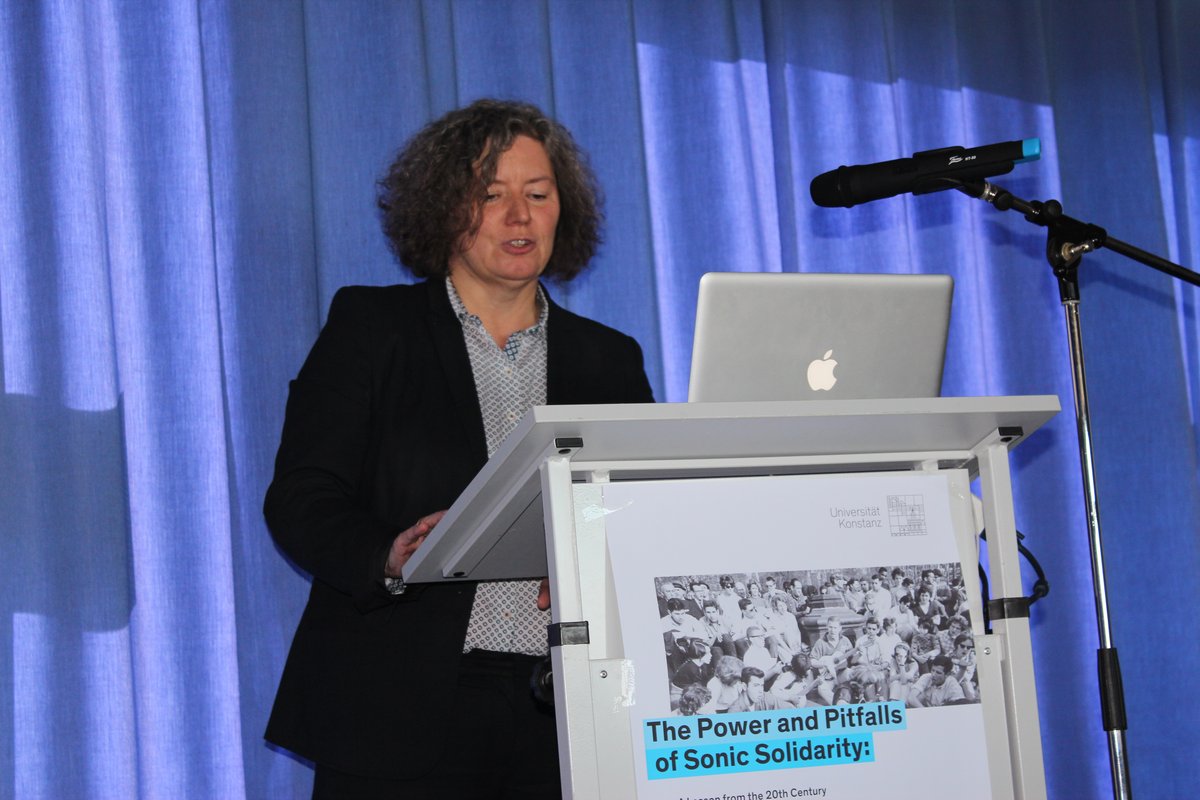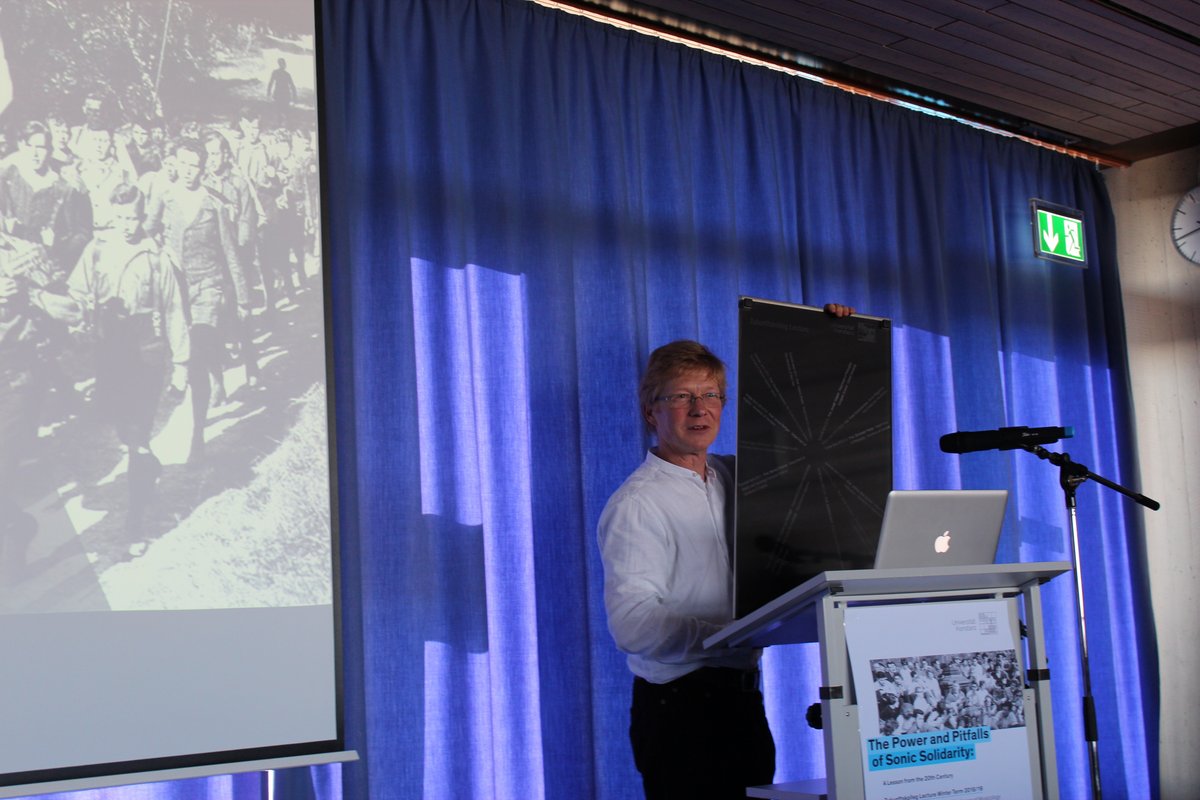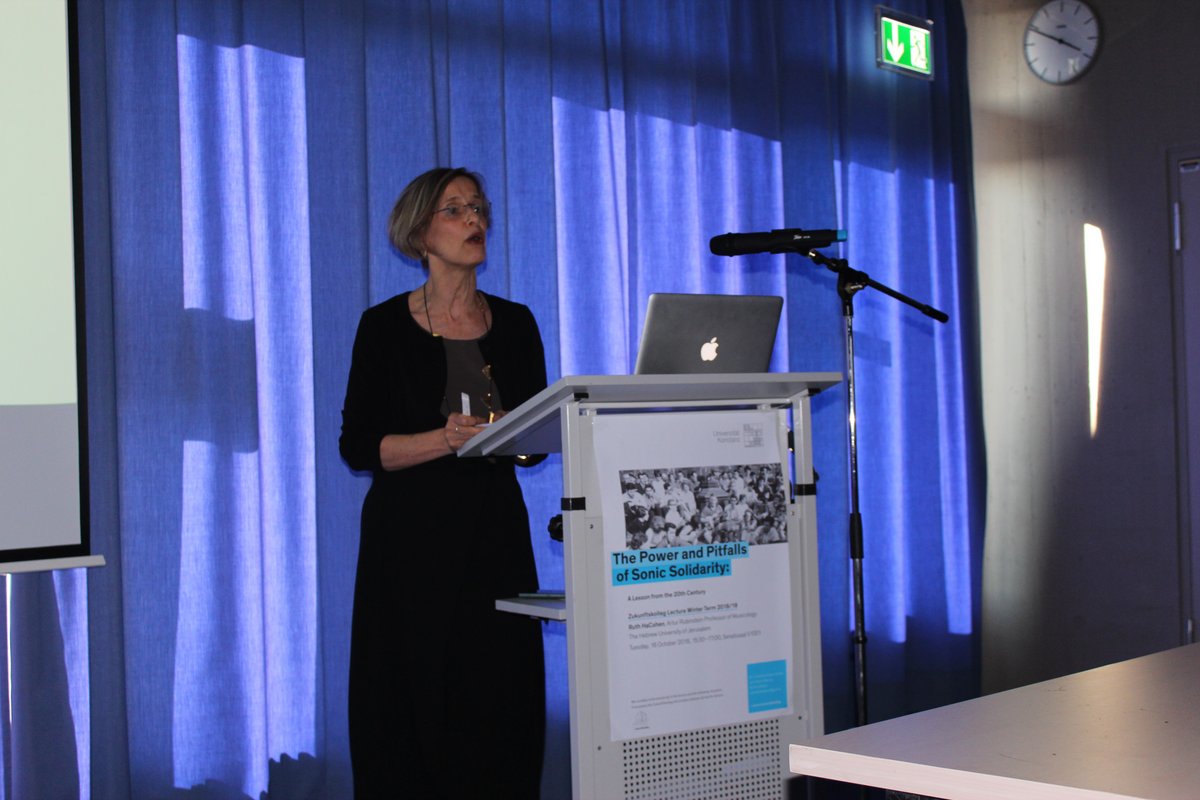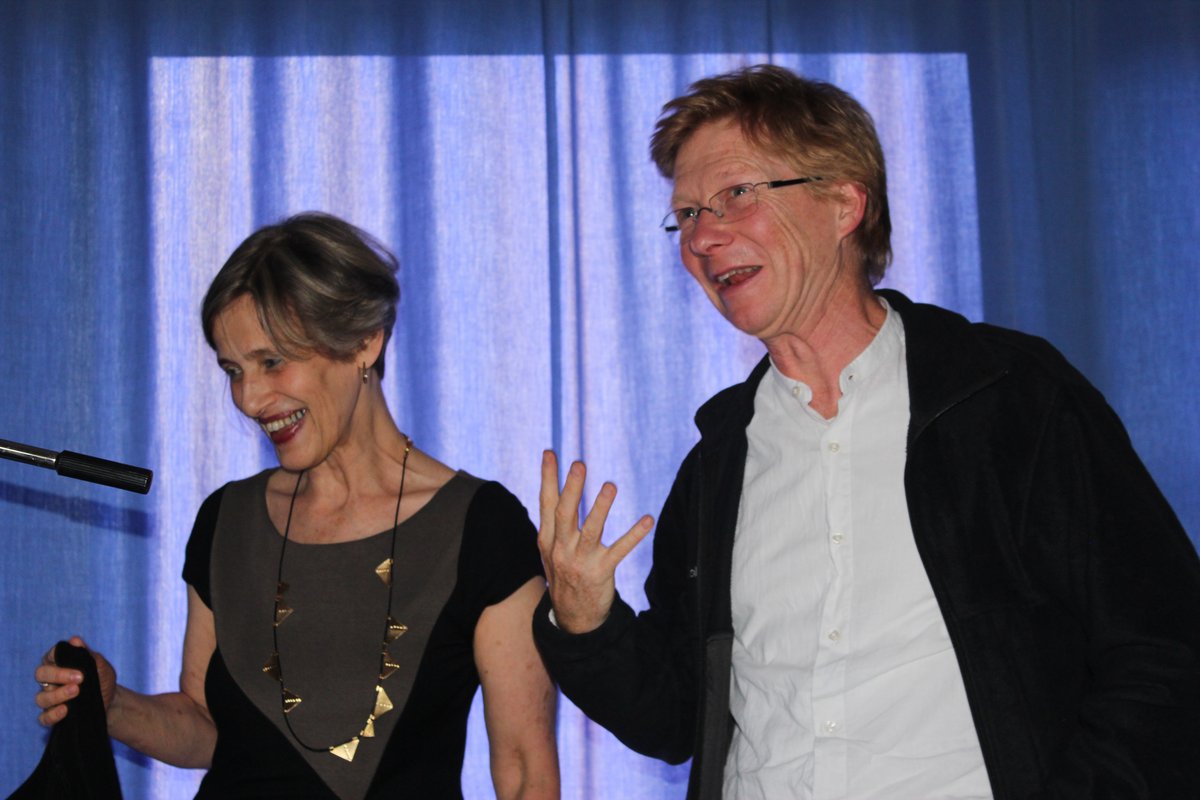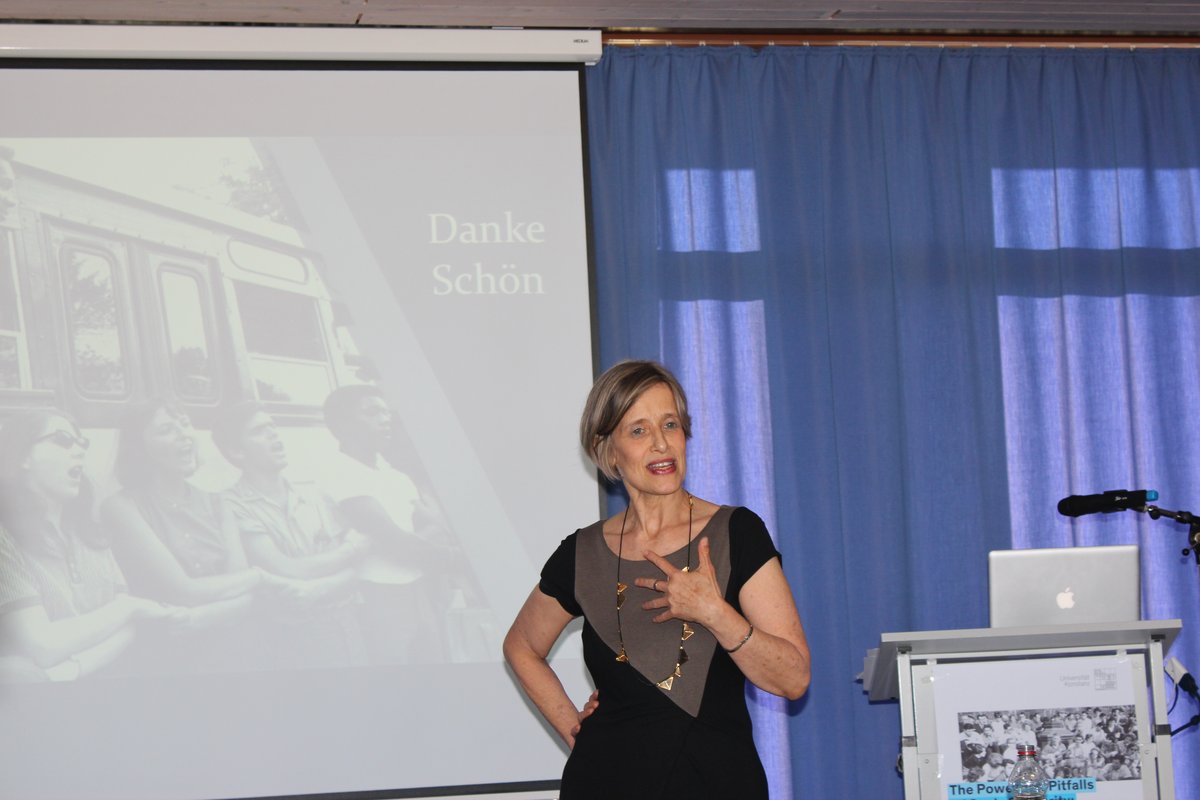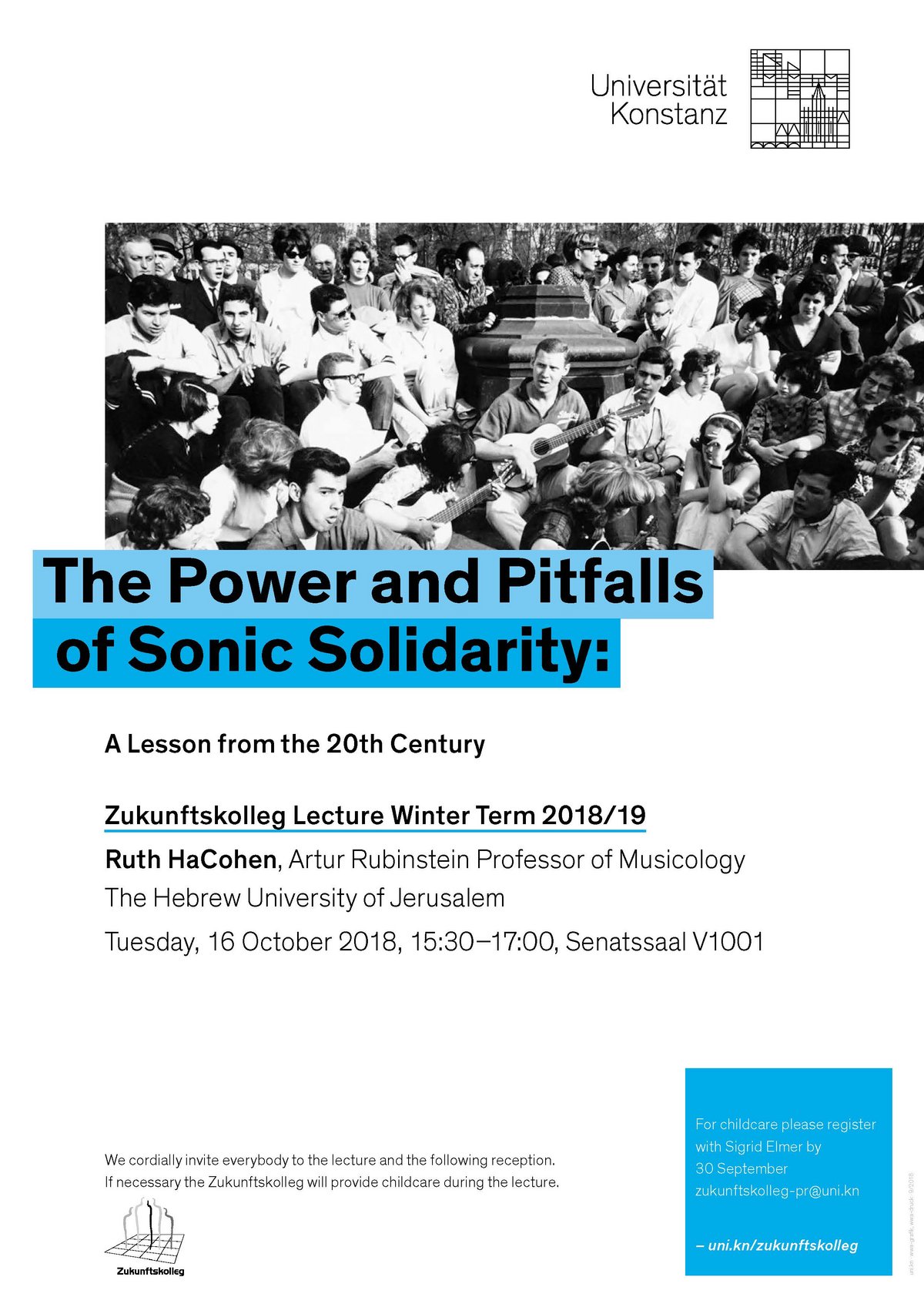The Power and Pitfalls of Sonic Solidarity - A Lesson from the 20th Century
Zukunftskolleg Lecture with Ruth HaCohen, Artur Rubinstein Professor of Musicology at the Hebrew University of Jerusalem, on 16 October 2018
The capacity of shared sonic behavior (singing, dancing, listening) to solidify a community is known to us since ancient times, but with a few exceptions, it is only since modern times that it has become a powerful resource in shaping social groups’ political and ideological cohesion. From the Hitlerjugend to the Freie Deutsche Jugend, and from the Zionist youth movements to the American human rights parades one cannot conceive of the vehemence and enthusiasm that characterized these movements without taking their sonic simultaneities into consideration.
What is the mechanism that brings about solidarity through sound? How can one characterize the mental contents it fosters? Can we infer a general lesson about solidarity from this phenomenon? When such solidarity becomes perilous, and how it loses its holding?
In her lecture, Ruth HaCohen addressed these queries through a variety of historical cases, and with the aid of a few philosophers such as Jean Jacque Rousseau, Franz Rosenzweig and Max Scheler.

